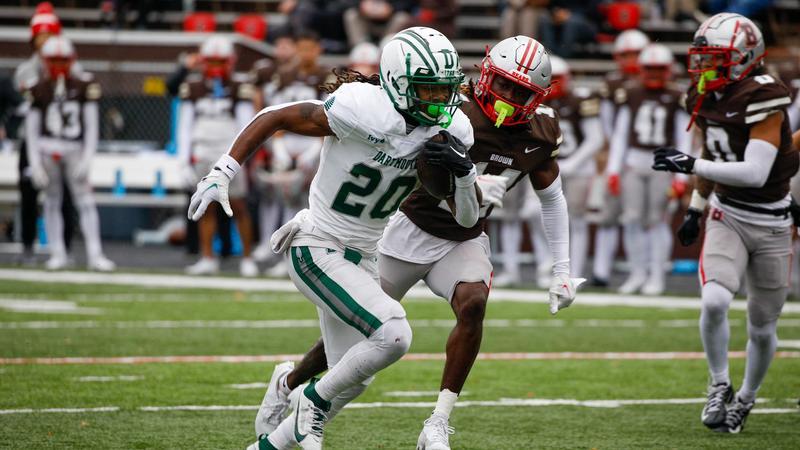•
Written By
Written By
•
•
•
Loading article...
Written By
Written By
Massachusetts Pirates games will air on NESN and Sportsnet Pittsburgh. Why is this a thing? Why does this impact the Ivy League?
Written By
Omar-Rashon Borja
Senior Writer, Editor, Historian
Written By
Omar-Rashon Borja
Senior Writer, Editor, Historian

Amid the madness of March, it is easy to lose sight of the Indoor Football League. While the league only kicked off last weekend, the league still had significant news in the media realm. In addition to the league's deal with Caffeine TV, the impact of which I discussed, the Massachusetts Pirates announced a continuation of their partnership with the New England Sports Network (NESN). NESN has aired Massachusetts Pirates games on tape delay since 2018 but will show live Pirates games for the first time.
The strangest aspect of this deal is the implication of Sportsnet Pittsburgh and Sportsnet Pittsburgh+. An indoor football team from Massachusetts airing their games in a market nearly 600 miles away is peculiar. However, it makes some sense when one realizes the Fenway Group owns the Pittsburgh Penguins, who air their games on Sportsnet Pittsburgh. Thus, when AT&T intended to shut down their regional sports networks (RSNs) in 2023, it was natural for Fenway Sports Group to step in and take over Sportsnet Pittsburgh since they own an 80% stake in NESN.
So how does this impact the Ivy League? Brown, Dartmouth, and Harvard have agreements to air games from different sports on NESN. Their agreements with NESN are not exclusive since ESPN+ streams every Ivy League sporting event. Simulcasting across RSNs is common across the FCS and beneficial since it caters to cord-cutters and cable subscribers tied to RSNs because of their local pro teams.
It is reasonable to believe that NESN will air Brown, Dartmouth, and Harvard games on Sportsnet Pittsburgh since they are willing to air Indoor Football League games on their sister network. The Ivy League can market itself to a new market of casual fans. RSNs expose FCS schools to diehard pro sports fans who religiously watch local teams. These fans are less likely to subscribe to a streaming service like ESPN+ as they have less interest in college sports.
The possible airing of games on Sportsnet Pittsburgh attracts a new, sizable market of casual sports fans to the Ivy League. Pittsburgh is the 28th-largest media market. However, the nearest Ivy League school to Pittsburgh, The University of Pennsylvania, is over 300 miles away. Thus, sports fans in the city more invested in pro sports are more likely to gravitate towards Penn State and Pitt.
Ivy League games could serve as lead-in programming for Pittsburgh Pirates games and Pittsburgh Penguins games. While waiting for Pirates and Penguins games to start, sports fans in Pittsburgh could stumble upon Brown, Harvard, or Dartmouth games and become more interested in the league.
As mentioned before, the trio of New England Ivies do not exclusively air select games on NESN. Consequently, they do not lose their main audience of cord-cutters dedicated to college athletics. Instead, RSNs provide exposure to more casual fans.
In an odd twist, the emergence of the Fenway Sports Group and the financial struggles of a regional sports network could benefit the Ivy League substantially. The Ivy League is nowhere near the media colossuses that the Big Ten or SEC are, but expanding their brand to Western Pennsylvania does not hurt. The Massachusetts Pirates' media deal provides some intrigue for the Ivy League.

"For New England, by New England" Pirates re-up with @NESN for a slate full of Live and Rebroadcasted airings starting with the home opener next Saturday against the rival @jaxsharks 📺 Click below for more info! masspiratesfootball.com/news/2024/3/15…